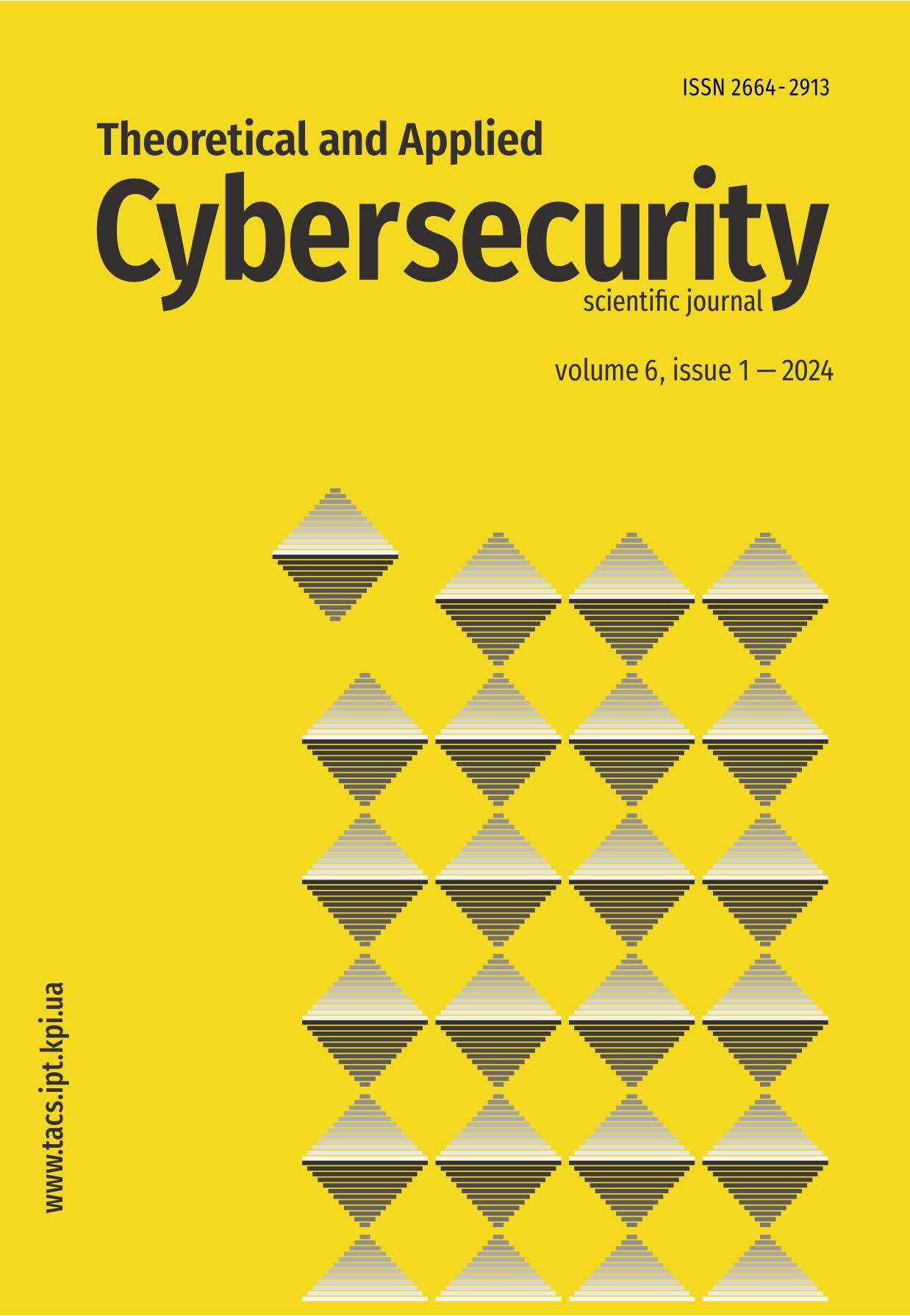An Example of of fuzzy ontology usage for risk assessment and attack impact
DOI:
https://doi.org/10.20535/tacs.2664-29132024.1.312677Abstract
The article discusses the use of fuzzy ontology for assessing risks and impacts of attacks in the field of information security. Fuzzy ontology, which is a formalized way of representing knowledge, offers effective solutions for processing complex and informal processes. The article substantiates the significance of fuzzy logic in structural analysis and presents an example of how new types of attacks influence the ontology. Key findings include the identification of risks associated with attacks through the application of fuzzy sets and entropy theory. The discussion highlights how these methods can enhance threat response and risk management in information systems.
Downloads
Published
Issue
Section
License
Authors who publish with this journal agree to the following terms:
Authors retain copyright and grant the journal right of first publication with the work simultaneously licensed under a Creative Commons Attribution License that allows others to share the work with an acknowledgement of the work's authorship and initial publication in this journal.
Authors are able to enter into separate, additional contractual arrangements for the non-exclusive distribution of the journal's published version of the work (e.g., post it to an institutional repository or publish it in a book), with an acknowledgement of its initial publication in this journal.
- Authors are permitted and encouraged to post their work online (e.g., in institutional repositories or on their website) prior to and during the submission process, as it can lead to productive exchanges, as well as earlier and greater citation of published work (See The Effect of Open Access).

